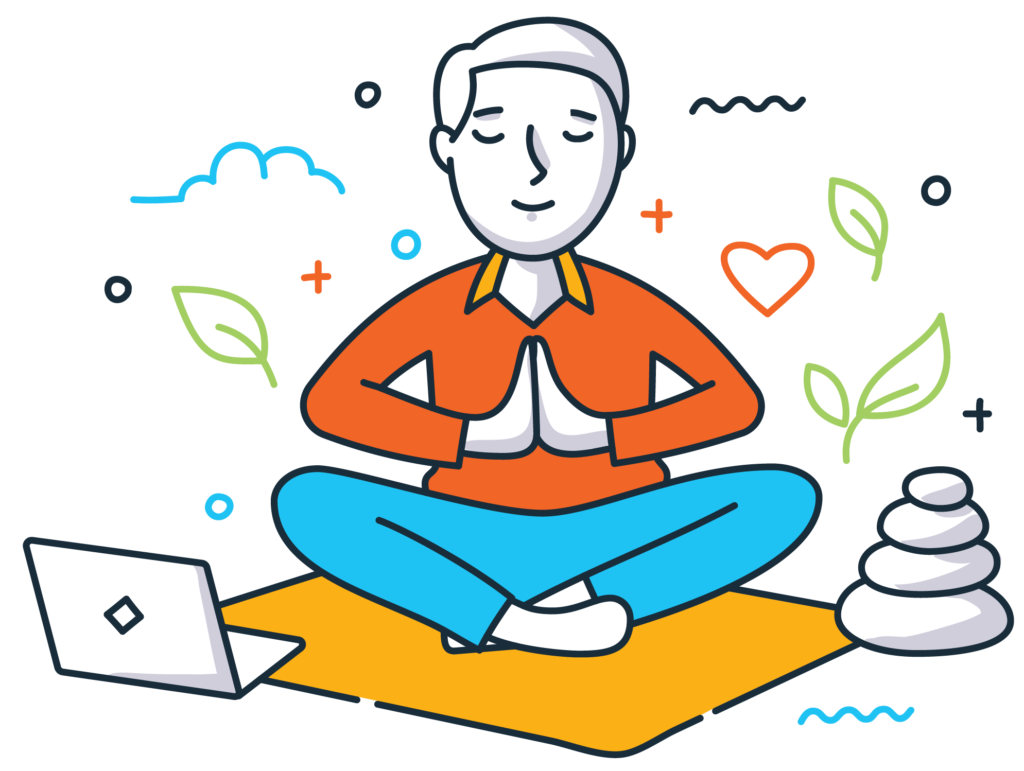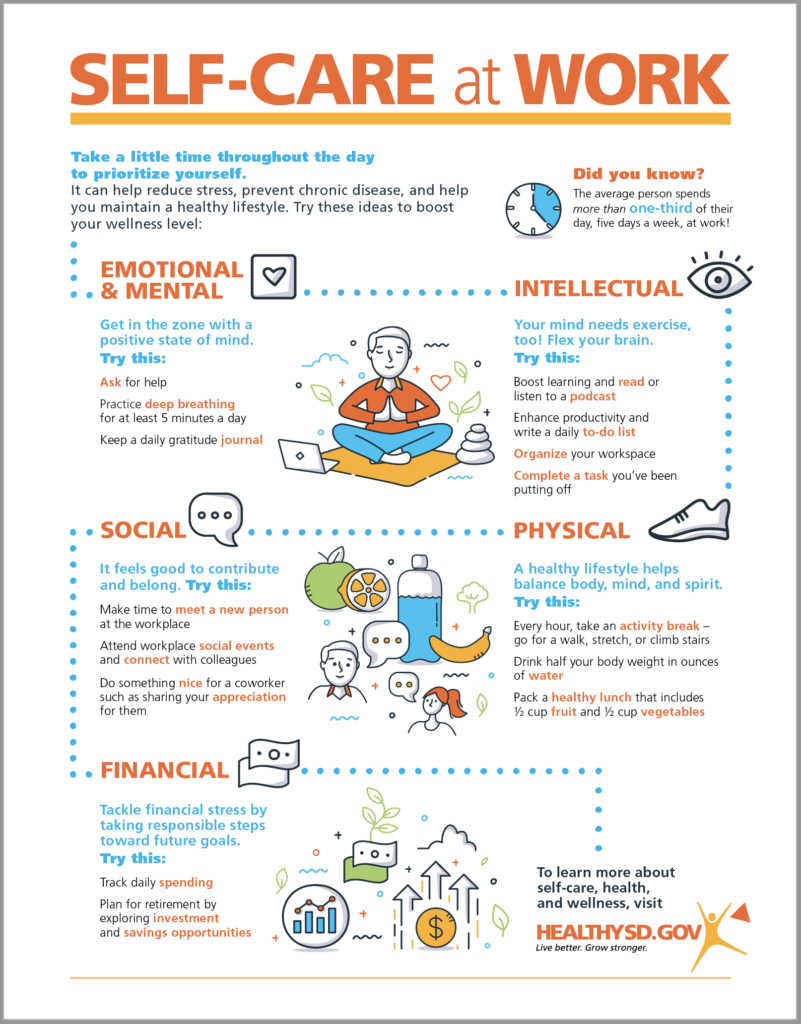Wellness is a broad concept. There are many overlapping layers that affect our physical, emotional, and mental health. Behavioral health professionals recognize eight areas (or dimensions) of health. These areas are interconnected and build on one another to provide our overall sense of wellness.
Wellness is Fluid and Can Change Over Time.
We may need different levels of support in each area at different times in our lives:
- Emotional
- Spiritual
- Intellectual
- Physical
- Environmental
- Financial
- Occupational
- Social
So, what are some of the keys to improving wellness?
Find Balance
Finding balance and making sure we have time to do the things that make us feel happy is important but can also be challenging when we are faced with stress, illness, trauma, or emotional situations. In these times, our habits and routines can help us get that feeling of control back.
This means focusing on ourselves as well as the roles we play in the lives of others—like being students, friends, parents, spouses, coworkers, congregants, hobbyists, community members, and citizens.
Our roles and relationships help define who we are, what gives us a sense of purpose, and how our lives are interdependent on other people, animals, and the environment. Being engaged in life and relationships provides a measure of balance and overall wellness.
Embrace support from others
Talking with someone who has been through similar things—whether it is a mental health issue, addiction, trauma, pain issues, smoking, diabetes, bullying, or abuse—makes us feel less alone. When we realize others have had similar feelings and experiences and have been able to move forward and grow, it can give us the confidence to move forward, too.
With a support group, we can expect:
- Supportive input from people with a range of backgrounds who have experiences similar to ours
- A chance to support others by our presence, compassion, our ideas, and empathy
- People who can suggest services or resources we might not have considered.
- We can find supportive people in many places—a community or church/synagogue/mosque/temple group, at work, or through volunteering efforts, to name a few.
Value Healthy Routines and Habits
Routines and habits are often developed based on basic needs such as nutrition/food, shelter, social affiliation, and safety or our role as parent, student, coworker, or community member. Our habits affect what we eat, what we wear, how we relate to others, how we go to work, how we spend or save money, and more.
Healthy habits can be very useful in helping us maintain balance but, unhealthy habits are often hard to change. For example, we might put ourselves down or feel we need a particular thing or person to get us through a tough spot. Life comes with stress, crisis, or trauma that can impact or alter our routines and habits. This can lead to emotional (anxiety, depression), social (cranky, isolated, angry), or physical (tired, agitated) imbalances.
The good news is that habits can be changed! Establishing new habits that support our wellness goals and values can be challenging, but worth it. Developing healthier routines and habits in our lives can lead to positive feelings (emotional), relationship satisfaction (social), increased energy (physical), inspiration (emotional), and a feeling that we are using our creative talents, skills, and abilities to engage in activities (occupational, intellectual, spiritual).
Create and Prioritize Healthy Habits
Identifying and prioritizing regular practices that make us feel better, such as mindfulness exercises, meditation or yoga, or calls to friends, is a first step. Another aproach is to think about steps you can take to avoid habits that aren’t as healthy or create stress like avoiding the news at night, or spending less time online. You can also ask someone and think together about what makes sense and what next steps might work best.
Here are Some Ideas to Consider:
- Being active in activities that have purpose. If our daily routine lacks meaning, we can feel
distressed or powerless. - Increasing activities that contribute to our wellness. Talking with a friend at the start of the day may
help set a good intention or plan for the day. - Getting a good night’s rest. Insomnia can noticeably impact social relationships, physical and
emotional reactions, productivity, and our ability to concentrate and accomplish tasks. - Being aware of the right amount of social interaction. It’s important to know our limits.
- Remembering that time zone changes or daylight saving time can impact our mood and our
routines; readjusting is normal. - Using a routine that works for us. Calendars help us remember when or how often we want to get
things done, such as get an oil change, clean the refrigerator, celebrate an accomplishment, call a
friend or family member, check our financial records, and schedule an annual physical. - Repeating a behavior until it becomes automatic, such as taking medication.
- Checklists help us make sure that important tasks are not being forgotten.
- Creating a wellness lifestyle can be challenging, but finding the right information, supports, and
resources and tracking our progress can help us get there.
Source: Creating A Healthier Life, A Step By Step Guide to Wellness Substance Abuse & Mental Health Service Administration (SAMHSA) www.samhsa.gov












